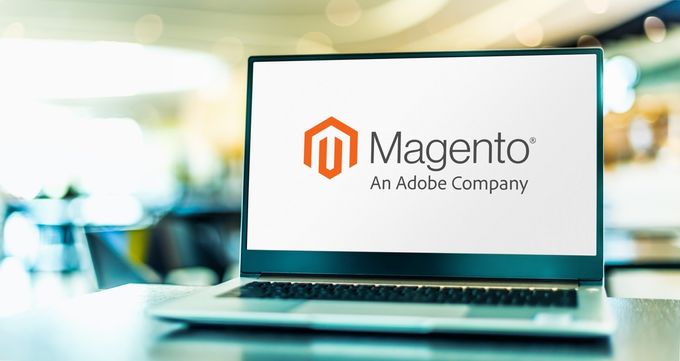Top 6 E-Commerce Platforms For Effortless Dropshipping
Published May 17, 2023

Dropshipping is a secret superpower for e-commerce sellers. By outsourcing procurement, storage, and shipping to a third-party supplier, merchants can take advantage of low startup costs, a wider selection of products, and reduced operational costs.
About 23% of all online orders in 2017 were delivered through dropshipping models—and that number will be much higher today. The global dropshipping market was valued at $155.6 billion in 2021, with a predicted Compound Annual Growth Rate (CAGR) of 27.1% for the next ten years.
So, if you're looking to start a dropshipping store, you need to partner with the right e-commerce platform to make sure your operations are as smooth as possible.
Best E-commerce Platforms for Dropshipping
Below, we look at the most popular dropshipping platforms for e-commerce businesses and compare their key features, unique selling points, and integrations.
- Shopify: Best Overall
- WooCommerce: Most Affordable and Flexible
- BigCommerce: Best for Scaling Your Dropshipping Store
- Magento: Best for Complex Dropshipping Stores
- Squarespace: Best for Marketing Your Dropshipping Store
- Wix: Best for Startup Dropshipping Stores
1. Shopify: Best Overall E-commerce Platform for Dropshipping
Pros
- Easy to use
- 24/7 support team
- Multiple payment processing options
Cons
- Platform lock-in
- Charges commissions on every order
Shopify is one of the most popular platforms for e-commerce businesses with a current 10% market share. Its extremely user-friendly interface and drag-and-drop editor sets a low barrier to entry, so sellers can build a dropshipping store without the hassle of coding. A variety of customizable themes and templates means it's easy to build your brand identity and stand out from competitors.
Shopify's best feature is arguably its app store, giving you access to over 8,000 apps that can seamlessly integrate with your store—and over 400 of these apps are dedicated just to dropshipping. No matter your niche or specific needs, Shopify can offer an app to manage store design, inventory, orders, customer engagement, and more.
Shopify provides the most comprehensive dropshipping solution for e-commerce retailers. Its range of customizable features and integrations makes it ideal for both beginners and established players in e-commerce.
» Head-to-head comparison: Discover whether Shopify vs Wix is better for dropshipping
2. WooCommerce: Most Affordable and Flexible E-commerce Platform for Dropshipping
Pros
- Seamless integration with WordPress
- 100% customizable
- Supports multiple payment methods
- Free to download and use
Cons
- WordPress reliant
- Lacks built-in SEO optimization features
WooCommerce started as a WordPress plug-in in 2008 but grew to currently hold the biggest market share in e-commerce platforms. As the natural option if you already have a WordPress setup, WooCommerce has complete access to the entire library of WordPress extensions. You can add almost any functionality to your dropshipping store and the platform can grow with you.
Best of all, the WooCommerce plug-in for WordPress is open-source and free to download, making it a cost-effective solution for smaller dropshipping businesses.
WooCommerce is a cost-effective and flexible solution for e-commerce sellers that requires little technical know-how to set up and use.
3. BigCommerce: Best E-commerce Platform For Scaling Your Dropshipping Store
Pros
- Run multiple stores using one account
- No transaction fees
- Provides web hosting services
- Security features
Cons
- Yearly sales threshold (depending on subscription plan)
BigCommerce is the ideal solution if you're looking to scale up your dropshipping operation in the long term. There are four subscription plans for BigCommerce: Standard, Plus, Pro, and Enterprise. Each ascending tier comes with a greater list of features to match your growing needs.
Plus, BigCommerce has a solution specifically for dropshipping. This functionality can help you streamline your front- and backend, improve SEO, enhance your customers' experience, and manage products, prices, orders, and inventory. Robust built-in analytics can help you monitor growth and integrations with different marketing tools can give you a competitive edge.
BigCommerce is useful for dropshipping businesses looking to scale up because of its built-in features, responsive customer support system, and dropshipping-specific functionality.
» Discover the best dropshipping apps to help you increase your bottomline
4. Magento: Best E-commerce Platform for Complex Dropshipping Stores
Pros
- Flexibility for customization
- Range of SEO optimization features
- Free and paid versions are available
Cons
- Steep learning curve
- Requires hosting services
Magento, now Abobe Commerce, is an open-source software and can be customized to meet very specific requirements, making it suitable for niche or complex dropshipping businesses. By working with a third-party developer (or coding yourself), you can shape your website down to the smallest detail. An array of compatible third-party apps fill in any holes left in the design.
Magento can specifically help you streamline order and inventory management to make sure your stock levels are accurate and orders are on time. Finally, its advanced SEO capabilities help to put you at the front of the pack.
Between its customizable features, variety of third-party apps, and committed customer support, Magento simplifies dropshipping for e-commerce sellers.
5. Squarespace: Best E-commerce Platform to Market Your Dropshipping Store
Pros
- Attractive designs
- Unlimited storage and bandwidth
- Blogging and content creation tools
Cons
- Clunky website editor
- Slower load times
SquareSpace is the best website-building tool for image-conscious and market-driven dropshipping brands. SquareSpace offers a diverse range of customizable templates to help you solidify your brand online. Its many third-party extensions mean you can easily integrate with relevant functionalities.
However, Squarespace's most attractive tool is its marketing package. Easily drive traffic to your dropshipping store through email campaigns, unique social media content, videos, blogs, and built-in SEO tools to measure it all. Plus, by integrating with different social media platforms, your customers can buy directly from your Instagram and Facebook pages.
Squarespace helps you create a visually stunning dropshipping website and share your brand with your customers via its extensive marketing arsenal.
» Manage your marketing costs: Here's how dropshippers can optimize their ROAS and lower breakeven point
6. Wix: Best E-commerce Platform for Startup Dropshipping Stores
Pros
- Easy to use
- Affordable pricing plans
- Email marketing capabilities
Cons
- Storage limits for free plans
- Inability to switch design templates
Wix makes it easy to enter the dropshipping space, especially if you're a startup. Building a website on Wix is extremely easy because of its drag-and-drop design templates. It also has a library of over 300 app integrations, allowing you to add features to your website without coding expertise. Plus, you can improve your website’s SEO rankings and reach customers through email marketing tools.
Finally, if you're on a budget, Wix has various affordable pricing plans that can satisfy your needs and your pocket.
Wix offers a comprehensive toolkit for dropshipping startups or e-commerce novices, including affordable pricing, customizable templates, multiple integrations, and marketing tools.
» Consider these dropshipping apps for e-commerce beginners
What Should You Look For When Choosing the Best E-commerce Platform for Dropshipping?
Every e-commerce business will have its own needs when choosing a dropshipping platform. Below is a list of factors to consider before making this critical decision:
- Ease of use: You won't get much use out of a platform that you don't understand, so choose one you can comfortably navigate.
- Customization: If your dropshipping store has any specific design requirements, make sure your chosen e-commerce platform offers a high degree of customizability.
- Third-party integrations: The more integrations the e-commerce platform offers, the better your chances of getting the functionalities you need to make your dropshipping store successful.
- Scalability: If you plan to grow your dropshipping store in the long term, partner with an e-commerce platform that grow with you from the start.
- Customer support: E-commerce issues are unfortunately unavoidable, so stick with an e-commerce platform that can help you resolve any problems efficiently.
- Cost: Choose an e-commerce platform that fits within your budget, but also offers sufficient value for the price.
Optimize Your Dropshipping Operations With BeProfit
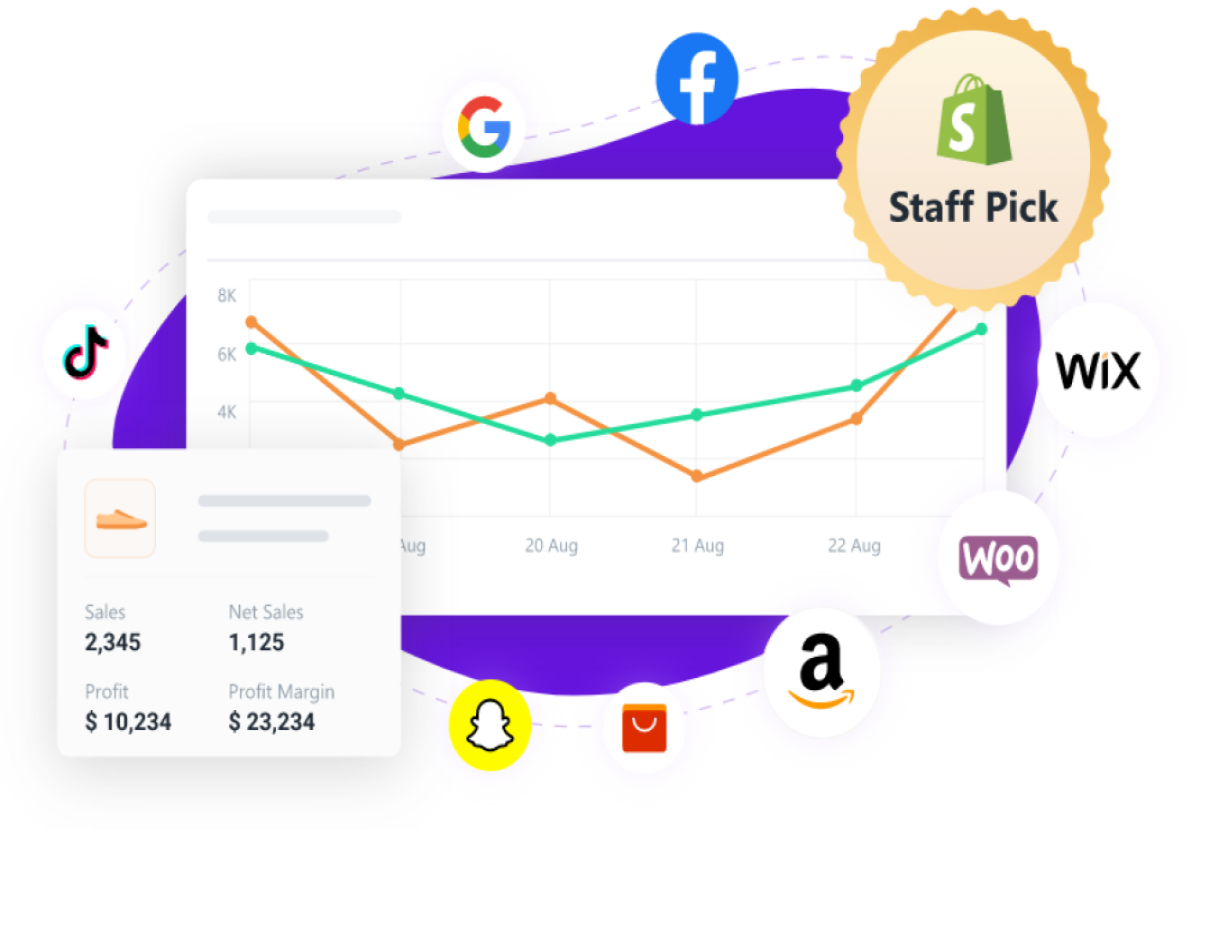
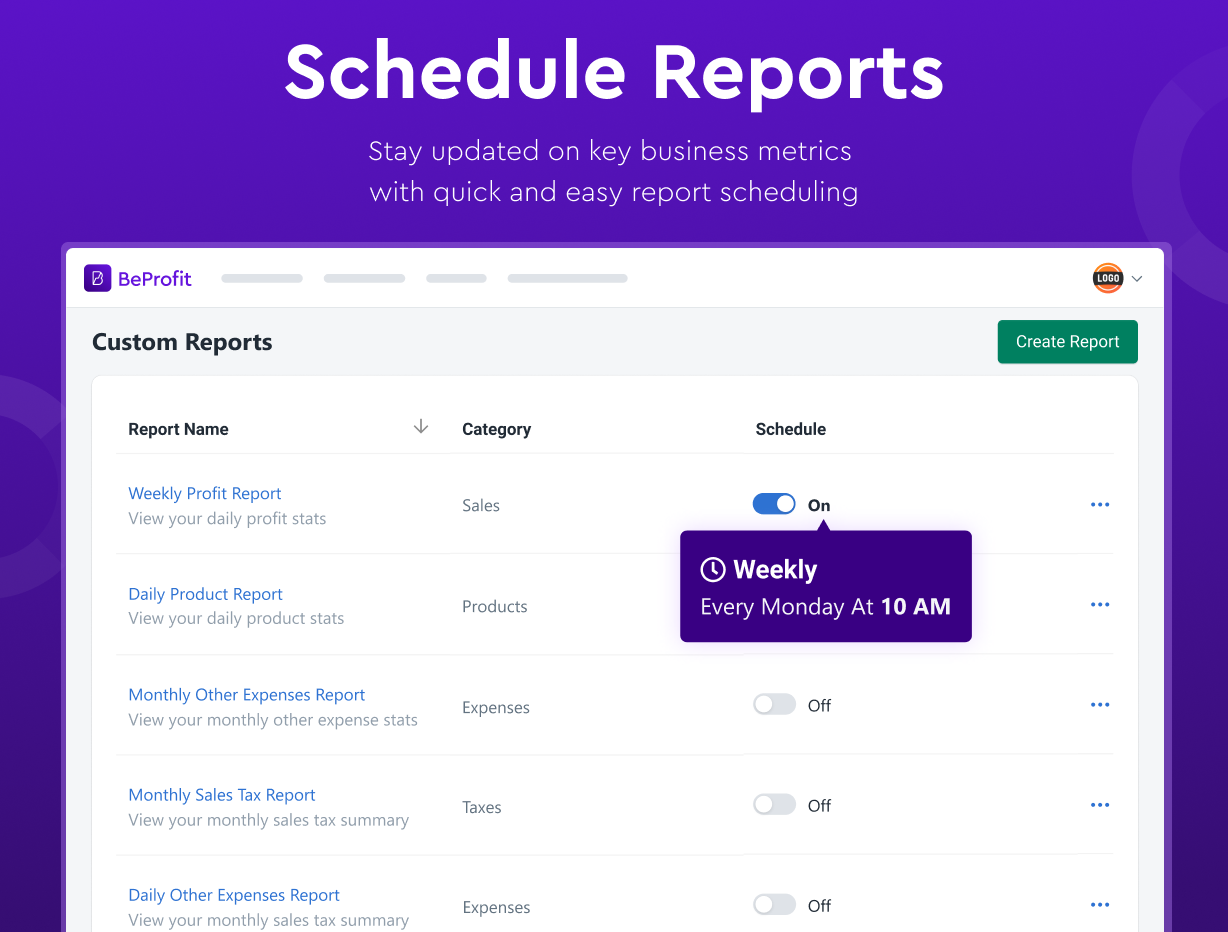
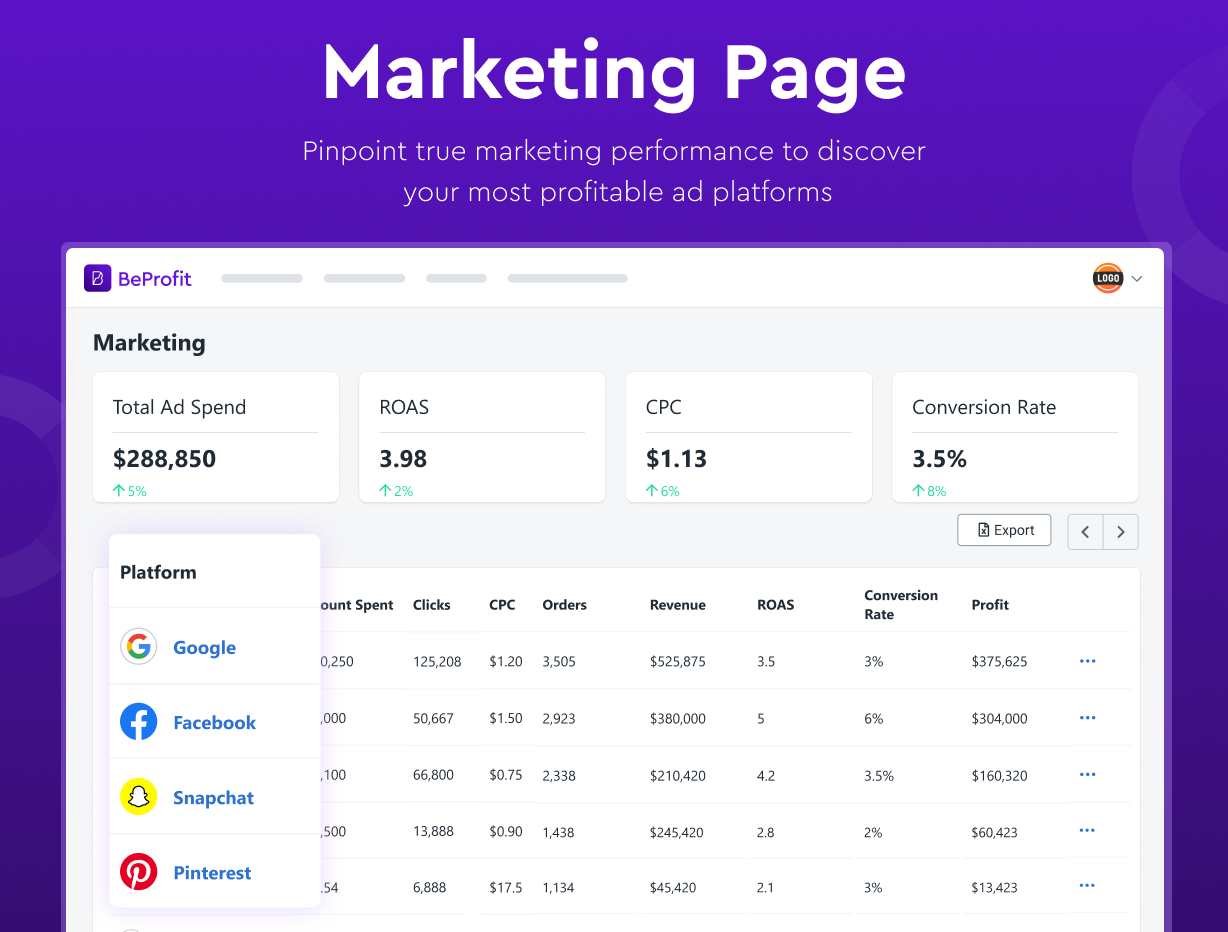
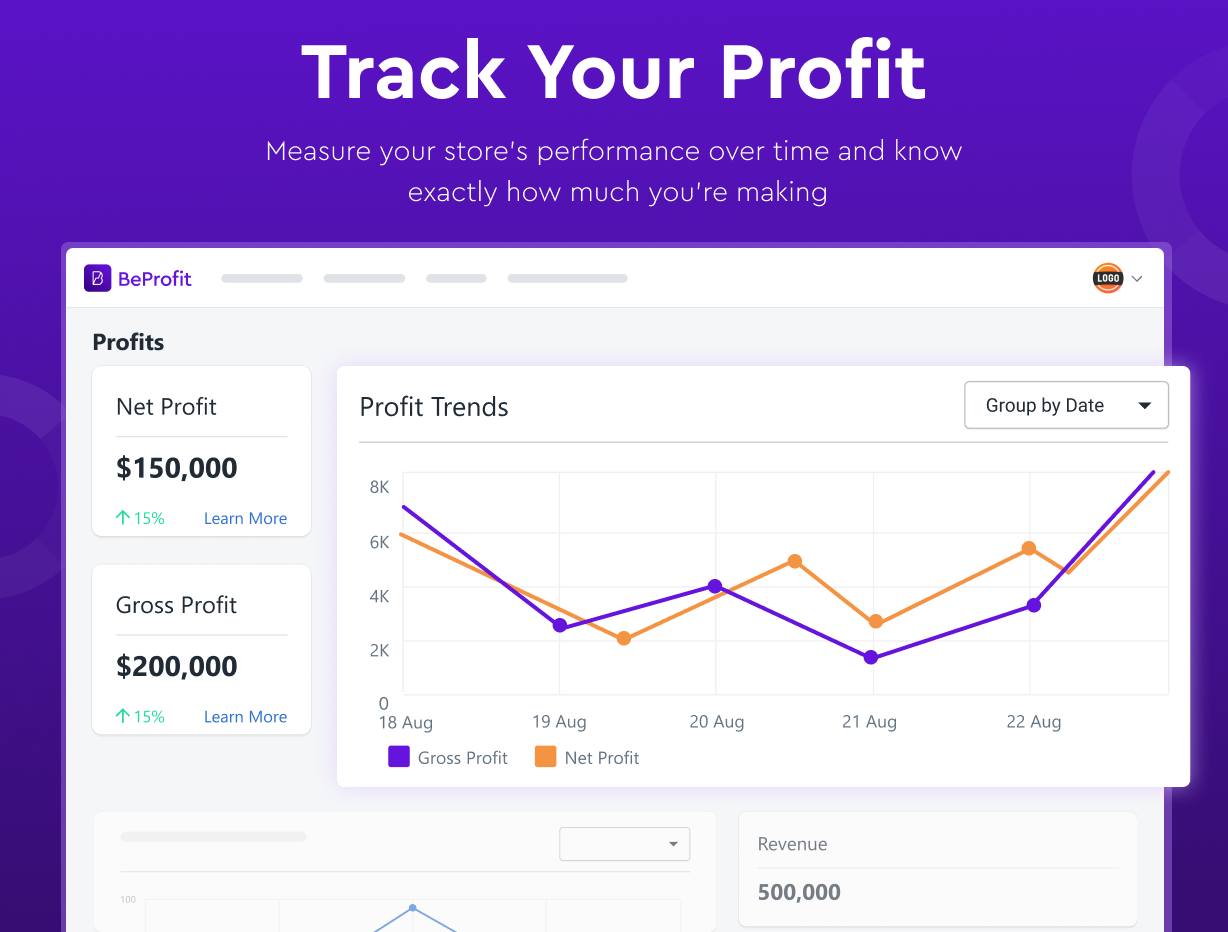
A dropshipping solution can ease a lot of logistical headaches for e-commerce retailers. Using technology to measure the performance of your dropshipping processes can significantly increase their efficiency. Profit-tracking apps like BeProfit allow e-commerce sellers to:
- Track profits in a dropshipping store
- Manage multiple e-commerce storefronts from one dashboard
- Integrate ad platforms to track marketing campaigns






